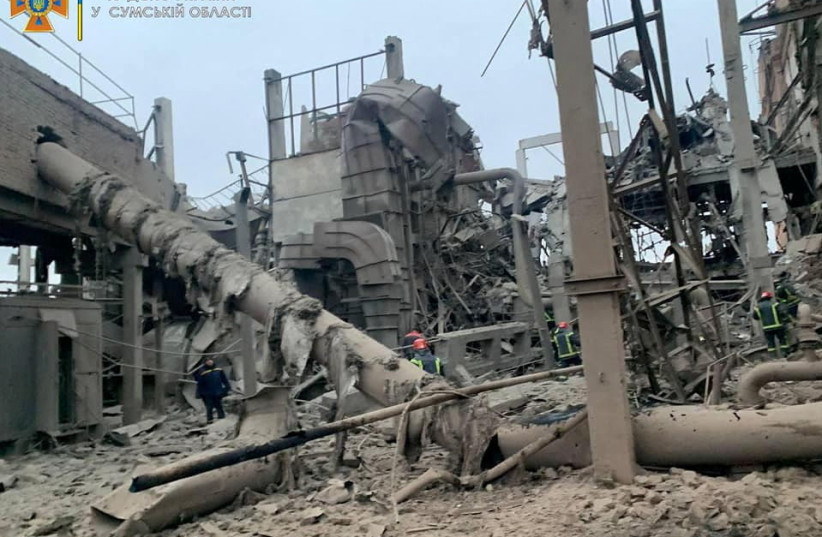Less than a month before the start of Ramadan, observed by Muslims as a month of fasting, prayer and reflection, a number of Palestinian terrorist groups have called for stepping up attacks on Israel.
Palestinian activists on Sunday said they expect an increase in violence before and during Ramadan, which begins at the beginning of April.
The activists said there were a number of reasons why they believed tensions would escalate in the coming weeks, especially in the West Bank and Jerusalem.
The reasons include, among other things, mounting tensions in Israeli prisons, where thousands of Palestinian prisoners are threatening to go on hunger strike in protest of Israeli “repressive” and “punitive” measures; IDF “incursions” into Palestinian cities, villages and refugee camps; house demolitions in Area C of the West Bank and some Arab neighborhoods of Jerusalem; threats to evict families from the Sheikh Jarrah (Shimon Hatzadik) neighborhood and Israeli security measures in the Old City, including the Aqsa Mosque compound.
Some activists said they were making an effort to bring the Palestinian issue back into the world’s focus in the wake of the Russia-Ukraine war.

“We want to make sure that the world does not forget about the Palestinians,” one activist from east Jerusalem told The Jerusalem Post. “In the past year, we managed to attract a lot of attention because of the Gaza war and the protests in Sheikh Jarrah.”
That war, referred to by Israel as Operation Guardian of the Walls, began on May 10, 2021, when Hamas and Palestinian Islamic Jihad launched rockets at Israel. The attack came after Hamas issued an ultimatum to Israel to withdraw its security forces from the Temple Mount and Sheikh Jarrah.
In the days leading up to the war, clashes erupted between Palestinians and police officers in Sheikh Jarrah, the Old City and Damascus Gate, where the protesters demanded the removal of security barriers set up by the police as part of strict security measures during Ramadan.
This year, the police do not intend to place the security barriers at the entrance to Damascus Gate, apparently to avoid unnecessary friction with local residents and worshippers converging on the Aqsa Mosque Compound during Ramadan.
But the decision not to impose security restrictions at Damascus Gate is not likely to ease tensions or prevent an outbreak of violence on the streets of Jerusalem and several parts of the West Bank.
According to another activist who spoke to the Post, the Palestinians are planning to continue the protests against plans to evict Arab families from their homes in Sheikh Jarrah. They are also planning a series of protests against the demolition of unlicensed houses in various parts of east Jerusalem, the activist said.
This year’s Ramadan comes amid increased charges that Israel is stepping up its measures to squeeze the Arab residents of Jerusalem out of the city.
The Palestinian Authority and several Palestinian factions continued to talk about an Israeli “scheme to carry out ethnic cleansing” of the Arabs in Jerusalem.
Additionally, they are continuing to talk about Israeli “conspiracies” and “assaults” against Islamic and Christian holy sites in Jerusalem. Jewish visits to the Temple Mount are described by Palestinian officials and media outlets as “a violent incursion and desecration” of al-Aqsa Mosque.
As if not enough, the Palestinians continue to accuse Israeli security forces of carrying out “extrajudicial executions” of young men and women in Jerusalem and the West Bank. These accusations almost always refer to Palestinians who are killed while carrying out attacks against soldiers, policemen and settlers.
On Sunday, the PA was quick to condemn the killing of Karim Jamal Qawassmeh, 19, who carried out a stabbing attack in the Old City of Jerusalem, as a “heinous crime” and a “field execution.”
Qawassmeh, a resident of the A-Tur neighborhood on the Mount of Olives, was shot dead by police officers after he stabbed a policeman. Another police officer was wounded during the attack.
The attack is seen as yet another sign of growing tensions ahead of Ramadan.
Shortly after Qawassmeh was declared a “martyr,” Hamas and other factions welcomed the “heroic operation,” saying it was a “natural response to Israeli crimes” against the Palestinians in Jerusalem and the West Bank.
In separate statements, Hamas, Palestinian Islamic Jihad and the Popular Front for the Liberation of Palestine urged Palestinians to step up the “resistance” against Israel in the coming days and weeks.
They said their main objectives were to ensure that the Palestinian issue remains under the spotlight and to exert pressure on Israel to halt or change its policies and measures in Jerusalem and the West Bank.
